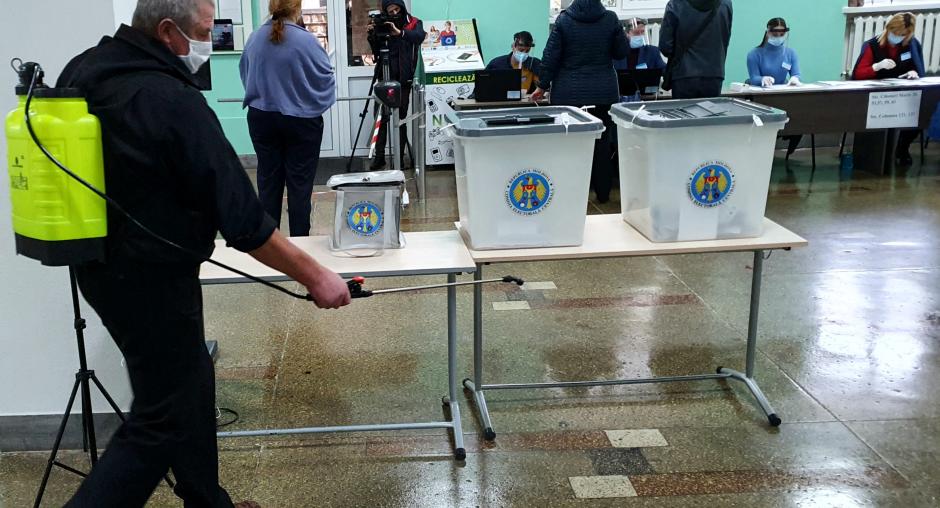Pluralistic campaign enabled voters’ choice between competing options but unclear rules remain, say international observers to Moldova election

CHISINAU, 2 November 2020 – Moldova’s 1 November presidential election was competitive and conducted within an adequate legal framework, but frequent and late changes to both legislation and administrative rules contributed to legal uncertainty, international observers from the OSCE Office for Democratic Institutions and Human Rights (ODIHR) concluded in a preliminary statement today.
“Although, the election took place under the COVID-19 challenges, in a pluralistic campaign voters were able to make informed choices from a wide range of candidates and political views,” said Corien Jonker, head of the ODIHR limited election observation mission.
Several aspects of the legislation require further improvement, particularly regarding candidate registration, campaign finance and electoral disputes. Overall, the election administration managed the technical aspects of the election efficiently and transparently.
Jonker continued: “Some Central Election Commission (CEC) decisions were criticized as partisan, which tarnished confidence in the election process. Public trust in elections is vital. It is up to political parties and contestants to create an environment in which the CEC can operate impartially and independently.”
Fundamental freedoms of expression and assembly were generally respected during the campaign. Candidates reached out to voters through meetings, rallies, campaigned door-to-door using leaflets and posters, as well as through media and social networks. Although forbidden by law, the incumbent president was supported by the Orthodox church and used religious events for campaigning.
Despite most media being politically affiliated and controlled, during the month of the campaign, ODIHR media monitoring found that news programmes presented the candidates, overall, in a balanced way.
In the limited number of polling stations visited, the voting process was generally calm, well-organized and transparent. However, concerns related to alleged vote buying and transportation of voters caused tension and road-blockages, interfering with voters’ freedom of movement and their access to polling stations.
Authorities facilitated entry and unrestricted observation opportunities for international observers in spite of the COVID-19 pandemic restrictions. The inclusive accreditation of observers contributed to the transparency of the electoral process.
ODIHR’s Limited Election Observation Mission to Moldova started on 23 September with a 10-member core team based in Chisinau and 22 long-term observers dispersed around the country. They will continue to follow the post-election developments. The mission is assessing the extent to which the election was held in line with OSCE commitments and other international standards for democratic elections, as well as with national legislation.
